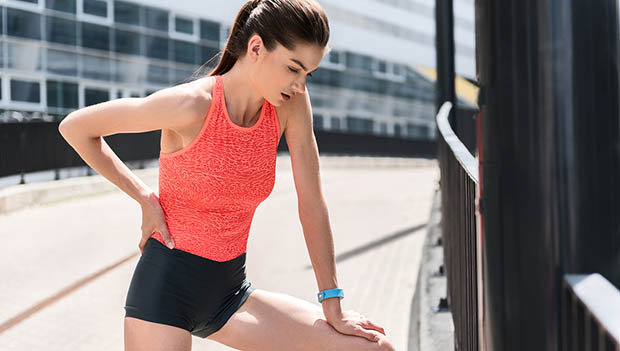
I'll never forget this awkward race moment: I was lined up in the first wave at the Indy Mini Marathon getting my pre-race zen on, when all of a sudden I felt a sprinkle on my lower leg.
I looked down and another runner was peeing right next to me. We've all been there, from needing to pee at the start line to having accidents along the journey to the finish. And if you're not a runner, you might not understand.
Don't skip out on your next race to avoid runner's trots, chafing or other uncomfortable ailments. Here are solutions and prevention methods for some of the most common running problems.
More: How to Treat and Prevent Common Running Injuries
Running Events Near You
Runner's Trots
Runner's trots occur when blood is diverted away from your gastrointestinal tract and flows to the heart and working muscles when you run. The nature of the up-and-down motion doesn't help either.In most cases, making a few lifestyle changes can have a significant impact. Avoid getting the runner's trots by following these simple tips:
- Limit high fiber and fatty foods several hours prior to running, especially foods that you know cause gastrointestinal problems.
- Give yourself at least four hours to digest a large meal and 2 to 3 hours for a normal-sized meal.
- Stay hydrated with plenty of water throughout the day. Dehydration can cause diarrhea.
- Morning runners: time runs after your bowel movements. Get up a little earlier and eat a banana or toast, or sip a coffee or tea to get things moving.
- Experiment with running at different times of the day.
- Avoid wearing waist packs that put pressure on your stomach. Choose hydration and fanny packs that have elastic belts so they expand when you breathe.
- Plan running routes that pass by restrooms.
- Experiment with removing sugary drinks, juices, dairy, high fiber meals and drinks that contain sugar substitutes from your diet.
If you experience extreme pain or consistent diarrhea, check with your doctor.
Have the opposite problem? 8 Foods to Relieve Constipation in Athletes
Chafing
Chafing happens when sweat and friction become friends and it usually occurs around the bra line, thighs, underarms and nipple. Here are a few tricks to stop this running problem once and for all:- Lubricate the area pre-run with Bag Balm or use an anti-chafing product like Body Glide that goes on easily and is non-staining and petroleum-free. Always apply liberally.
- Use a sports bra made from "wicking" materials, which draws moisture away from the skin. Make sure the bra is rated for high impact activity and fits well.
- To prevent nip-chafe, wear round Band-Aids or a product developed specifically for this condition called NipEaze.
- Wear compression shorts—bike shorts—made from wicking materials so the material rubs rather than your thighs.
- Have a backup plan: Carry a tube of Vaseline lip balm in your running short pocket to apply on the run, if needed. If you're in a race, stop by the medical station, ask for Vaseline and put a little on your shoulder for future use.
If you still chafe, treat the area with an antiseptic and antibacterial ointment to prevent infection.
More: The 8 Most Embarrassing Running Scenarios


